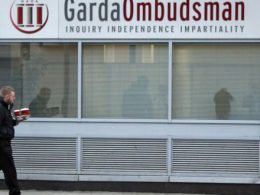All citizens who value the need for publicly owned vital infrastructure would have experienced a shudder of fearful anticipation last month when the Minister for Finance established a Review Group on State Assets and Liabilities. The Department of Finance Press brief’s opening sentence seemed innocuous enough, stating that the group would “provide advice on the proper stewardship of state assets and on opportunities for the better use of those assets.”
The real intent, however, could not be disguised when the very first Term of Reference reads: “To consider the potential for asset disposals in the public sector, including commercial state bodies, in view of the indebtedness of the State.” And in case that wasn’t clear enough Term Number Two goes: “To draw up a list of possible asset disposals.”
To make sure that these Terms of Reference mean exactly what they say, Minister Lenihan put his very own wolf in wolves’ clothing in charge of their implementation. Following his previous recommendations – through the report of the so called Bord Snip Nua – for savage cuts in virtually all public services, UCD economist Colm McCarthy is Lenihan’s best man to take out the semi states. Can there be any doubt that this neo liberal academic will advocate anything other than the selling off of substantial tranches of public assets in enterprises such as the ESB, Dublin Airport Authority, CIE, An Post and Coilte?
Do we need any more evidence that this government lives in an upside down world where it takes into public ownership, via NAMA, the enormous property related debts racked up by cowboy speculators and their bankrollers, while preparing the ground for the selling off of crucial state assets? It bails out reckless native gamblers through multiplying the national debt while planning to put into the hands of international gamblers vital infrastructure which contributes annually hundreds of millions of euro in dividends to the exchequer and employs tens of thousands of workers in relatively decent jobs.
We have been here before. Piloted by Minister Lenihan’s aunt, former Minister for Public Enterprise Mary O’Rourke, the privatisation of Telecom Eireann graphically shows what comes first in the priorities of venture capitalists who get their hands on public assets. Like the ESB and Bord Gais, it was a profitable net contributor to the Irish exchequer when state owned, albeit bureaucratically and inefficiently run at the top, before the then Fianna Fáil led government sold us what we already owned.
The majority of ordinary people who bought modest amounts of shares were burnt by the big players who waited for a collapse in share prices before moving in and taking over. That share price collapse took place during a boom let us remember. What price would the various utilities fetch now in the midst of a recession?
Eircom subsequently passed through the hands of several highly leveraged venture capitalists none of whom sufficiently developed the necessary infrastructure. Now Ireland stands out as a laggard in the developed world in terms of the poor levels of broadband coverage.
These commercial semi-state companies and others which have gone the way of Eircom were set up in the early decades of this State precisely because the weak indigenous capitalists were incapable of developing the infrastructure. These assets were built up with public investment to a position where they are seen as ripe for asset striping by private interests. Why should we have the slightest confidence that the international financiers that have landed the world in a spectacular crisis in their lust for super profits would act differently if they got their hands on more of our infrastructure?
Our public enterprises should not be privatised but strengthened and developed further. This means ending the bureaucratic logjams that exist in some, and democratizing all, by bringing their workers to the heart of organising these enterprises. It means democratically established boards – including their customers – to run them. This would mean taking out the array of hacks appointed by government because of their connection with one or other of the establishment political parties. It means slashing the obscene salaries of the current top brass, replacing them if necessary with people who wish to serve society while earning a decent wage, without wishing to ape the greed evident in the top echelons of private banking and industry.
Like Fianna Fail, Fine Gael also wants privatisation of public assets which begs the question where the Labour Party will stand in a Coalition government.
The workers in all of the commercial, semi-state companies must learn the lessons of what has befallen the staff of Eircom, Irish Sugar and Aer Lingus post-privatisation and ready themselves for a fight to defend their jobs and the services they provide. And working people generally should stand four square with them.












